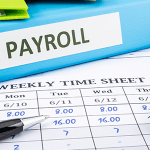It is a decision every parent faces – do you send your child to nursery or do you get a childminder?
And it is a tough decision to make as on the one hand with a nursery your child will have ample chance to socialise, mix and get ready to start school, whilst on the other, with a childminder your child will receive more one-on-one attention.
So how do you choose which is best for you and your child? Which is the right choice?
Instead of supplying you with a long list of their pros and cons, below we have come up with a range of things to consider to help make it easier for you to make a real and informed decision:
- Qualifications – believe it or not, but childminders and nursery staff are not actually obligated to have qualifications in childminding. Other than having a current Paediatric First Aid certificate, as long as they have policies and procedures in place that satisfy the local authority; nurseries and childminders can start operating their business straight away.That being said, most nurseries endeavour to make sure all of their staff are trained and qualified, whilst the majority of childminders will also undertake a range of childcare courses.
For this reason, when choosing between the two ask to see their qualifications. Qualifications are a great way to build reassurance that your child is in safe hands, as they demonstrate their ability to provide your child with the right care, as well as understand your child’s needs and how they can help them to develop.
- Inspection report – what did their last one say? Nurseries within English are registered with OFSTED, and as such are inspected regularly (at set intervals). During this inspection, OFSTED will create a detailed report that will grade the nursery on a scale of excellent to good, poor or inadequate. This report can be found by going onto OFSTED’s website and searching for the nurseries name.Childminders are similarly inspected by OFSTED (in England) to ensure that they meet safety and learning standards (that are expected of them). These reports can also be found on their website.
For both, we recommend reading the reports, but also paying attention to when these reports were done. As I mentioned before, they are done at intervals, so the report could be a couple of years old and no longer entirely accurate.
- Daily routine – whether you choose to send your child to a nursery or a childminder, this transition will bring great change to your child’s routine. For most children, following a routine/having a structure to their day can help prepare them for school life. Nurseries are well known for keeping to a timetable that isn’t that different from school. For instance, a lot do messy play in the morning before story time and lunch. Some nurseries will even encourage children to nap – depending on their age – in the afternoon, whilst others allow napping to happen when the child wants.Whatever the routine they adopt, nurseries will display a weekly/monthly timetable for you to view so you are fully aware of what your child is doing.
Childminders tend to operate differently and will structure their day based on the children they are caring for. Like a nursery, childminders are expected to offer different tasks/activities during the day, in order to stimulate children and encourage learning.
- Keeping you up-to-date – whilst a timetable of their daily activities is helpful, as a parent you’ll want to know how your child is personally doing and what they are getting up to whilst they are there. Similarly, you want to be kept abreast of any concerns. For this reason, it is important to find out their procedures for keeping you informed so you are completely aware of the best ways to communicate with them.Nurseries and childminders should keep detailed records of your child’s development. These will be entered daily, weekly or monthly into a reporting system which they can then pass on to you. Alternatively, you can leave a notebook with your childminder, where they can make daily entries of your child’s activities, eating habits and nap times etc.
- Managing children’s behaviour – in order to create a safe and happy environment for children, boundaries need to be established; however, the way parents choose to discipline their children can vary from parent to parent, and in turn from nursery to nursery and childminder to childminder.We suggest asking to see their policy documents on discipline, so you can see how they choose to handle it. From distraction techniques, to raising concerns with you, to working together; techniques can vary so be sure to thoroughly read them and only use a nursery/childminder that suits you.
Naturally, we all want the best for our children, so picking between a nursery or a childminder is a decision that will take time and careful consideration.
So why not try using the questions above to help you make the right choice? Alternatively, why not take a look at our range of childcare and childminding courses, so you can gain a firmer impression of the qualifications they possess and how they can assist your child?





Comments (0)
Join the conversationCancel Reply